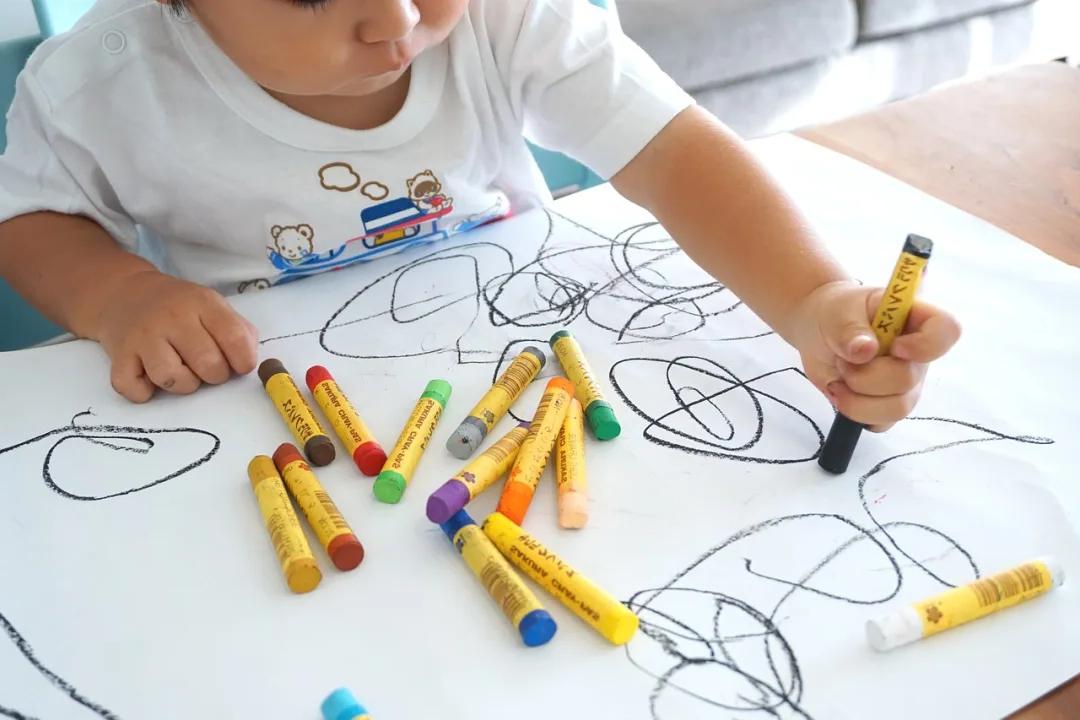As children grow, their brains develop at a phenomenal rate, but there are certain behaviors that quietly undermine this process. As parents, we all want our kids to be healthy, smart, and quick-witted, but there are some hidden “obstacles” that could affect their cognitive growth. Here are five behaviors that could impact your child’s brain development.
1. Overuse of Electronic Devices: The “Digital Demon”
In the digital age, electronic devices are like modern-day “dark demons,” lurking around and influencing our children’s behavior. Research has shown that excessive screen time can have negative effects on a child’s attention span, learning abilities, and social skills.
Studies from The Journal of Child and Adolescent Psychiatry have even warned that more than 2 hours of screen time is closely related to Attention Deficit Hyperactivity Disorder (ADHD). More alarming is the fact that long screen hours can make children’s social skills as fragile as soap bubbles.

Imagine a child who can chat away with virtual game characters but struggles to greet a classmate. It’s as if the “digital demon” has taken control. So how do we face this challenge?
Tips to Manage Screen Time
- Set Screen Time Limits: Research shows that moderate screen time can boost learning, but too much leads to distraction. The Journal of Child and Adolescent Psychiatry recommends limiting screen time to 2 hours per day.
- Choose Educational Content: Just like selecting nutritious food, choose shows and games that encourage learning, not mindless entertainment.
- Encourage Interaction: Instead of solitary screen use, engage kids in activities like online games or video calls to boost social interaction.
- Implement “Screen-Free Days”: Designate days where no screens are allowed. Let your child engage with nature and family activities. Their laughter while playing outdoors will be much more enriching than any screen.
- Lead by Example: Parents should set the tone by putting away their own devices during family time.

2. Negative Emotions and Stress: The “Emotional Killers”
Stress is often lurking in the background of modern life, but prolonged exposure to stress and negative emotions can significantly affect a child’s brain development. It impacts areas like the prefrontal cortex, which controls impulse control and decision-making, and the hippocampus, which is responsible for memory.
Children under chronic stress may experience difficulties in learning, and it can even affect their ability to regulate emotions. Creating a supportive environment is crucial for their growth. Psychologists suggest teaching kids emotional expression and stress management techniques to improve their mental health.

Ways to Help Children Manage Stress
- Encourage Emotional Expression: Set up a “feelings corner” at home, with coloring books and emotion cards. Let children draw or talk about their feelings to help them express themselves.
- Social Support: Research shows that social interactions with peers and family are vital for building resilience. Encourage your child to spend time with friends and talk to you about their worries.
A positive home environment can significantly reduce stress, so let’s work together to break down the emotional walls that prevent our children from growing strong and healthy.

3. Poor Eating Habits: A Double-Edged Sword for Brain Health
We all know kids love candy, chips, and sugary treats, but this kind of food is a ticking time bomb for their brain development. Studies from The Journal of Nutrition show that diets high in sugar and fat can lead to cognitive decline.
While indulging in sweet treats might provide an immediate sugar rush, it’s the brain that silently protests. On the flip side, foods rich in Omega-3 fatty acids—like fish and nuts—are “superfoods” for the brain. These nutrients support cognitive function and memory.
Tips for Improving Kids’ Diets
- Include Omega-3s: Fish and nuts are essential for brain growth. You can say, “Eat this fish, and you’ll become a genius!”
- Use Antioxidants: Studies suggest that antioxidants (like Vitamin C and E) reduce oxidative stress and protect brain cells. So, feed your child fruits and vegetables in bright, colorful combinations—these protect their little minds.

A good diet is critical for a child’s cognitive function, so as parents, we need to guide them toward healthy eating choices.
4. Lack of Physical Activity: Keep Your Child from Becoming a Couch Potato
Too much screen time and not enough movement can affect a child’s physical and mental health. A sedentary lifestyle is harmful to both the body and the brain. Regular physical activity increases brain-derived neurotrophic factor (BDNF), which plays a key role in forming neural connections.
Without exercise, children’s brains enter a “sleep mode,” with decreased blood flow and cognitive abilities. On the other hand, children who engage in outdoor activities develop better social and problem-solving skills.
Get Your Kids Moving
- Outdoor Exploration Days: Set aside a day every week for outdoor adventures—no screens, just fun activities in the park.
- Create Fun Challenges: Have treasure hunts, relay races, or obstacle courses to make physical activity exciting.

Encourage your kids to enjoy nature and physical activities to keep their brains sharp and social skills growing.
5. Insufficient Sleep: The “Silent Intelligence Killer”
According to the American Academy of Pediatrics, preschoolers need 10-13 hours of sleep, while school-aged children need 9-12 hours. But in reality, kids often fight sleep. Sleep deprivation negatively impacts the hippocampus, which is essential for memory and learning.
When kids don’t get enough rest, memory consolidation and information processing are sluggish. Research published in The Journal of Neuroscience indicates that lack of sleep decreases neuronal connections, reducing learning efficiency.
How to Help Kids Sleep Better
- Establish a Bedtime Routine: Create a calming pre-sleep routine with storytime, dim lighting, and soothing activities.
- Emphasize Sleep’s Importance: Explain to your kids that good sleep helps their brains “recharge” so they can be the best version of themselves.

Let’s prioritize quality sleep for our children to improve their focus, memory, and overall development.



















